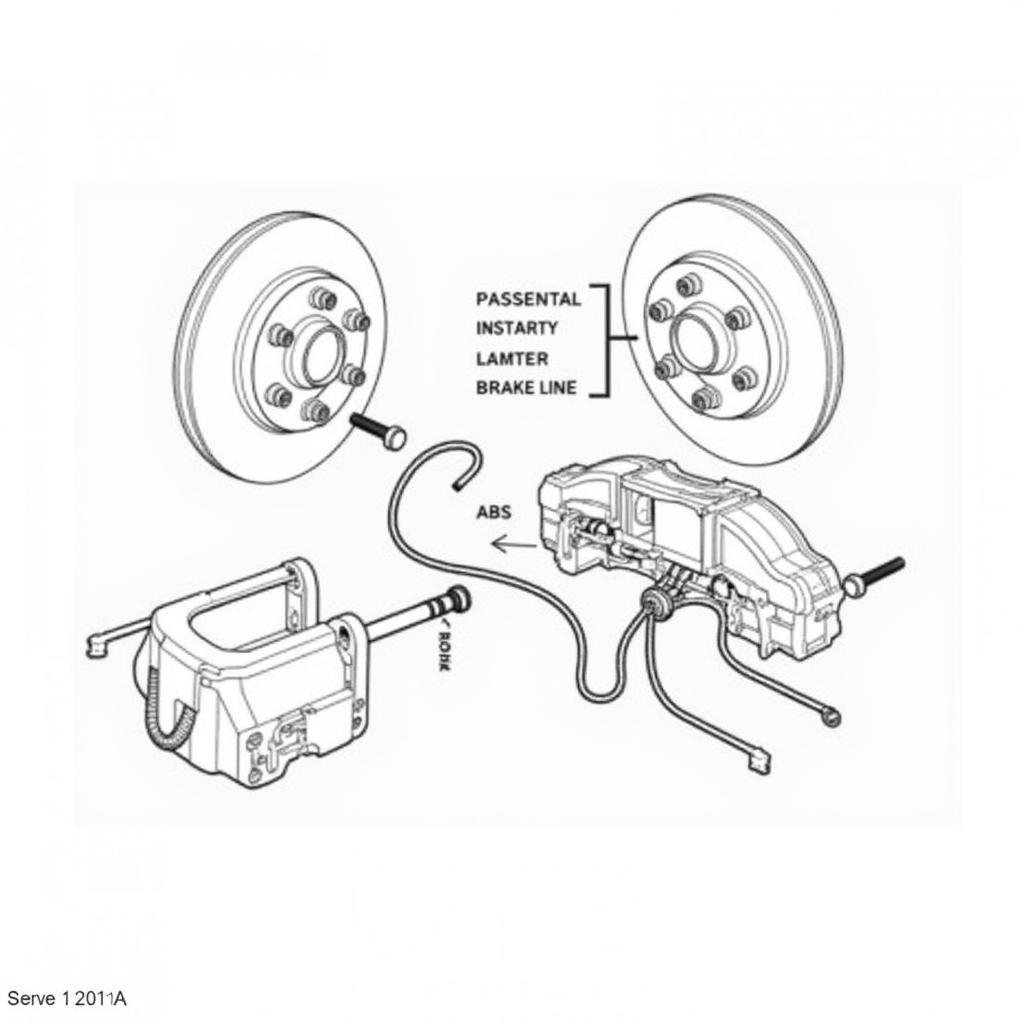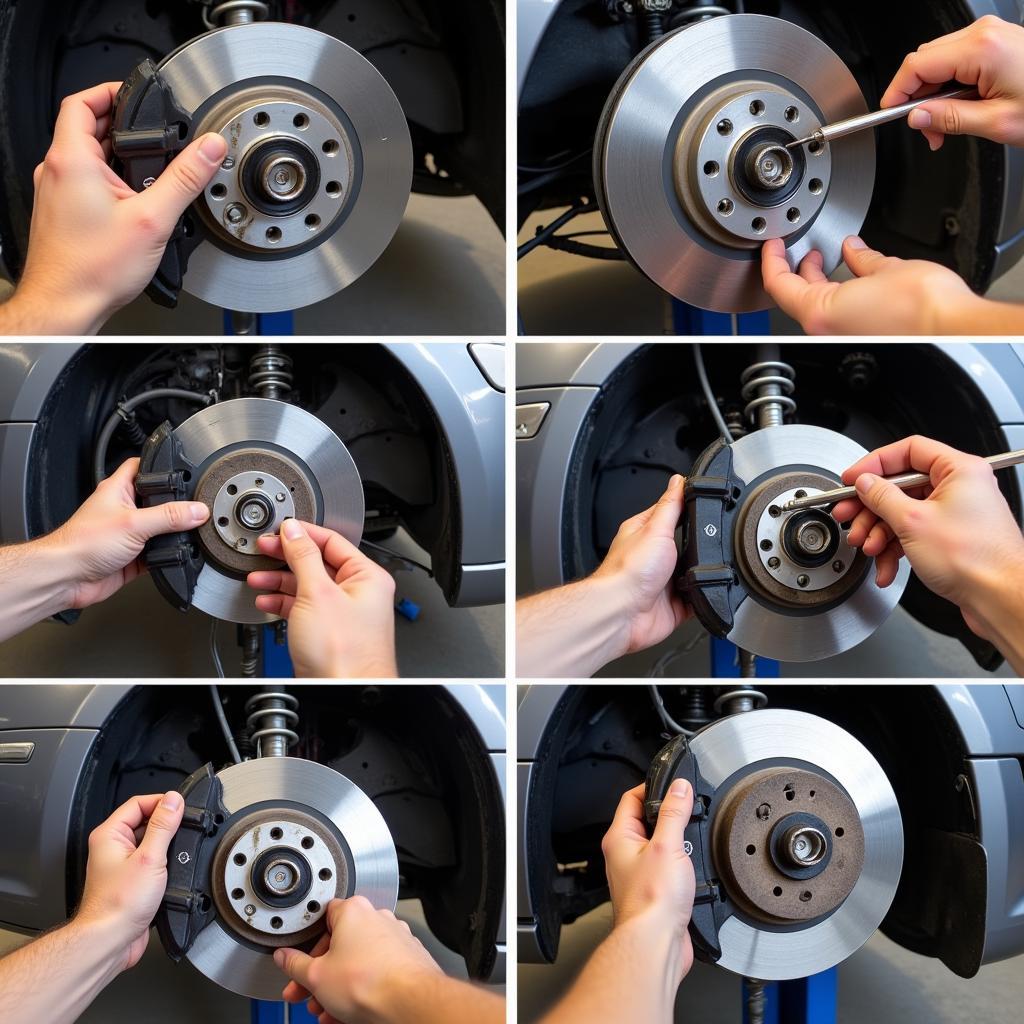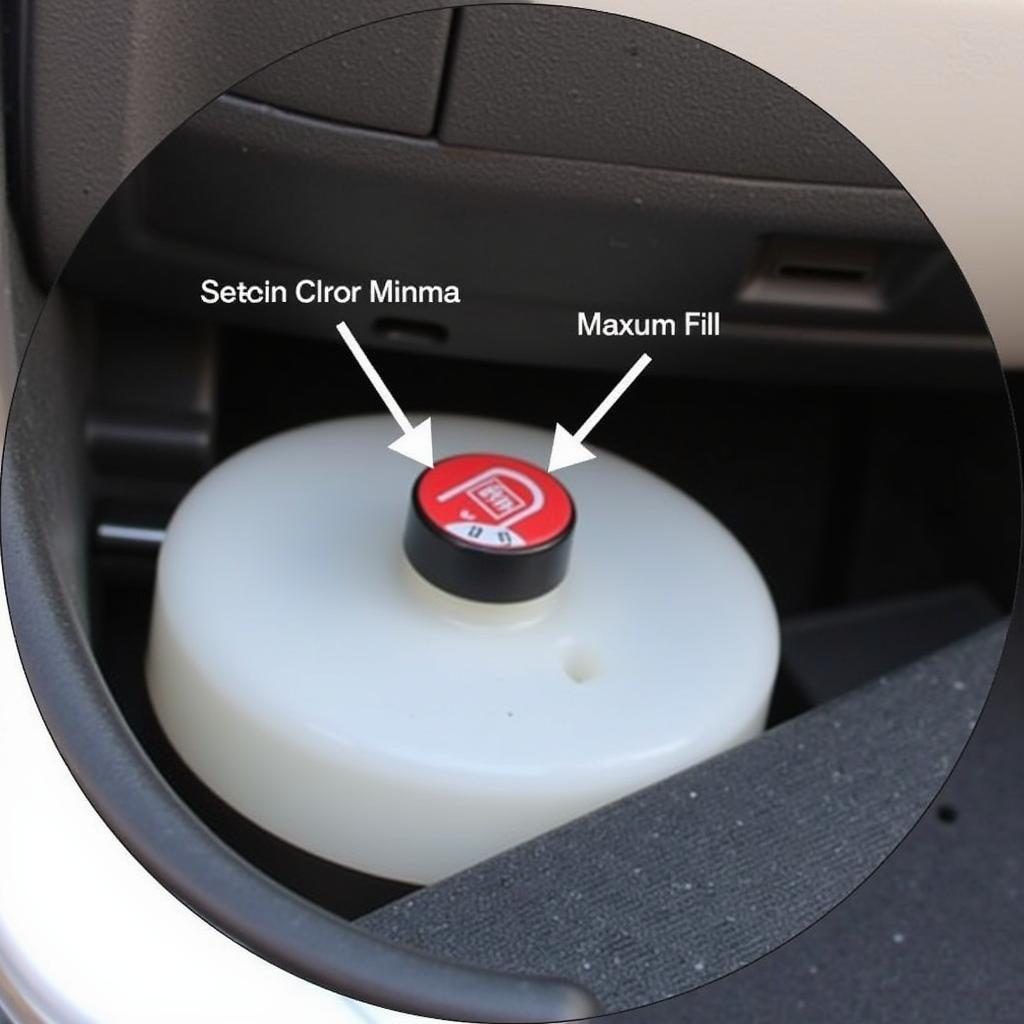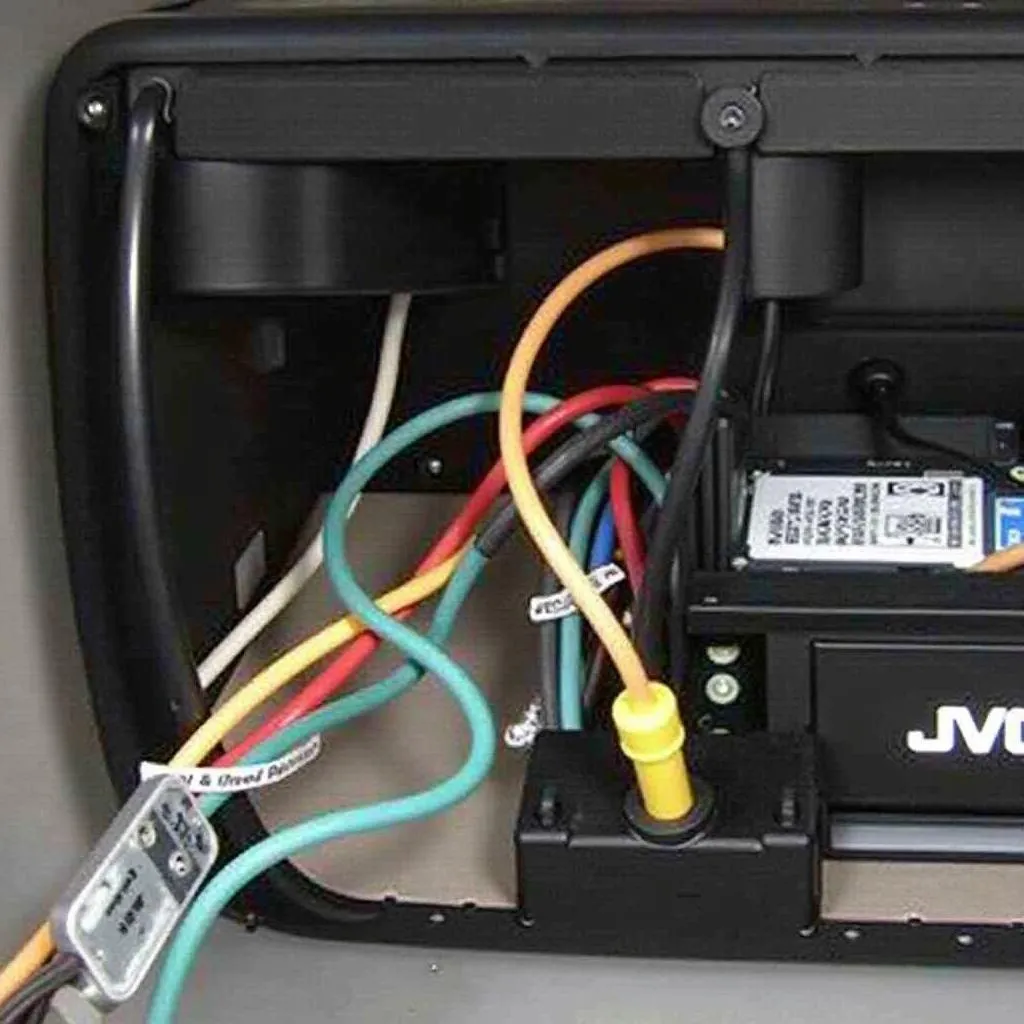The dreaded VW Passat brake fluid warning light can be a jarring experience. Understanding its meaning, potential causes, and solutions is crucial for maintaining your vehicle’s safety and performance. This comprehensive guide delves into everything you need to know about the VW Passat brake fluid warning, empowering you to address the issue effectively.
The appearance of the brake fluid warning light usually signals a drop in brake fluid level, a critical issue that can compromise your braking system’s ability to function properly. Ignoring this warning can lead to serious safety hazards. This guide will explore various causes for this warning light, from minor leaks to more complex problems, and offer actionable solutions. It’s important to note that while some issues may be easily resolved, others require professional diagnosis and repair. For instance, you might find helpful information on a related topic such as the red brake warning light switch.
Understanding Your VW Passat Brake Fluid Warning Light
The brake fluid warning light on your VW Passat dashboard is typically a red exclamation mark within a circle, often accompanied by the word “BRAKE.” This light illuminates when the brake fluid level drops below a safe threshold. This indicates a potential problem with your braking system that demands immediate attention.
What does it mean when the brake fluid light comes on in your Passat? Simply put, it means your brake fluid is low. This could be due to several reasons, and we will explore them in the subsequent sections. Sometimes, a simple top-up might suffice. However, it’s crucial to identify the underlying cause of the fluid loss to prevent further complications. This is where understanding different diagnostic methods and software comes in handy. You may also want to see how this applies to other vehicles, like the 2011 F150 brake warning light.
Common Causes of Low Brake Fluid in a VW Passat
Several factors can contribute to low brake fluid levels, ranging from simple wear and tear to more serious mechanical failures.
- Brake Pad Wear: While worn brake pads don’t directly leak brake fluid, they require the brake calipers to extend further to engage the rotors. This increased extension results in a lower fluid level in the reservoir.
- Leaks in the Brake System: Leaks can occur in various components of the braking system, including brake lines, hoses, calipers, and the master cylinder. These leaks, even minor ones, can lead to a significant drop in brake fluid level over time.
- Faulty Master Cylinder: The master cylinder is a crucial component responsible for distributing brake fluid pressure throughout the system. A faulty master cylinder can leak internally or externally, causing a decrease in fluid level.
- ABS Issues: Problems within the Anti-lock Braking System (ABS) can also contribute to low brake fluid levels, though this is less common.
 VW Passat Brake System Components Diagram
VW Passat Brake System Components Diagram
Diagnosing and Addressing the Problem
Diagnosing the exact cause of low brake fluid requires a systematic approach. Start by visually inspecting the brake lines, hoses, and calipers for any signs of leakage. Look for wet spots, drips, or stains. If you can’t find any obvious leaks, a professional diagnostic scan might be necessary to pinpoint the issue. Modern diagnostic tools can identify specific fault codes related to the brake system. As an example, check out the information available on the BMW brake warning light red.
Checking the Brake Fluid Level
First, locate the brake fluid reservoir under the hood. Check the fluid level against the minimum and maximum markings on the reservoir. If it’s low, carefully top it up with the correct brake fluid specified for your VW Passat model.
Inspecting for Leaks
Carefully examine all brake components for leaks. A flashlight can be helpful in identifying small leaks. Remember to check the brake lines running along the undercarriage as well. If you suspect a leak, consult a professional mechanic for repair. Consider also exploring related issues like the 2011 Ford F150 brake warning light.
Professional Diagnosis
If you’re unable to identify the cause of the low brake fluid, it’s crucial to take your VW Passat to a qualified mechanic. They have the expertise and specialized equipment to diagnose and repair complex brake system problems. This might involve advanced diagnostic software and programming to address any electronic issues within the ABS or other related systems. You might find useful information regarding the brake warning resistor diode assembly location 1997 F150.
 VW Passat Brake Fluid Leak Inspection
VW Passat Brake Fluid Leak Inspection
Conclusion
The VW Passat brake fluid warning is a serious issue that should never be ignored. Addressing the problem promptly can prevent further damage to your braking system and ensure your safety on the road. While some issues, like worn brake pads, can be relatively simple to fix, others require professional expertise. Regular maintenance and timely inspections are key to preventing brake fluid issues and maintaining a safe and reliable vehicle.
Expert Insight from Robert Johnson, Automotive Diagnostics Specialist: “Ignoring a brake fluid warning can lead to costly repairs and compromise your safety. Addressing the issue quickly is paramount.”
FAQ
- What is the most common cause of the VW Passat brake fluid warning light? Worn brake pads are often the culprit, although leaks in the brake system can also be responsible.
- Can I drive my VW Passat with a brake fluid warning light on? It’s strongly recommended not to drive with the warning light on. Low brake fluid can significantly impair braking performance, leading to dangerous situations.
- How often should I check my brake fluid level? It’s good practice to check your brake fluid level every few months or as part of your regular vehicle maintenance schedule.
- What type of brake fluid should I use in my VW Passat? Consult your owner’s manual for the specific type of brake fluid recommended for your model.
- Is it expensive to fix a brake fluid leak? The cost of repair depends on the source and severity of the leak. Minor leaks can be relatively inexpensive to fix, while major repairs, such as replacing the master cylinder, can be more costly.
- How can I prevent brake fluid leaks? Regular maintenance, including brake inspections and fluid flushes, can help prevent leaks and other brake system problems.
- Can low brake fluid damage my VW Passat? Yes, low brake fluid can lead to damage to various brake components, including calipers, rotors, and even the ABS system.


